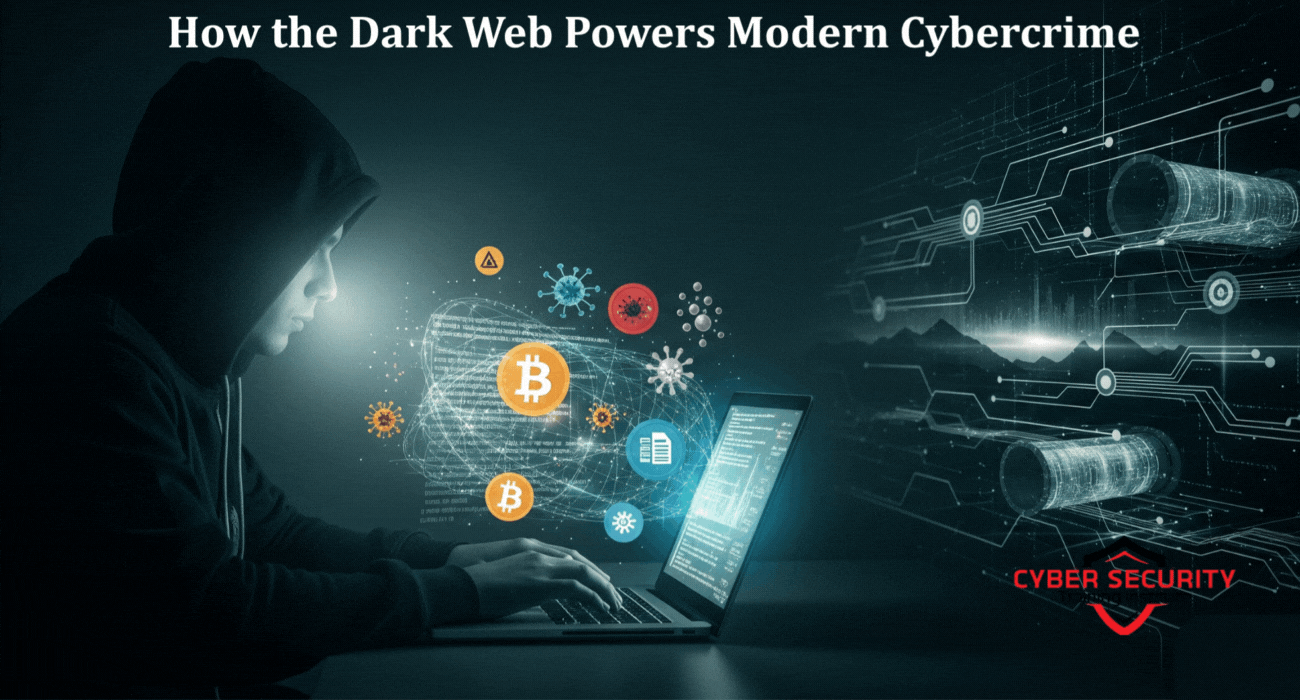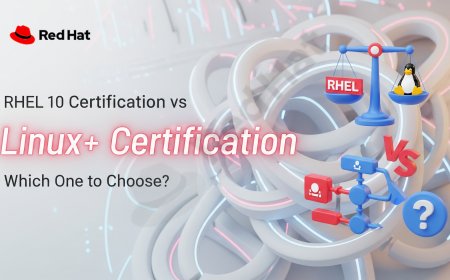How the Dark Web Fuels Cybercrime | Explained Simply
Imagine a hidden corner of the internet where anonymity reigns, and almost anything can be bought or sold—legal or not. This is the dark web, a mysterious and often misunderstood part of the online world. While it’s not inherently evil, the dark web has become a breeding ground for cybercrime, enabling illegal activities like data theft, drug trafficking, and hacking services. In this blog post, we’ll break down what the dark web is, how it fuels cybercrime, and why it matters to you, even if you’ve never ventured there. Written in simple terms, this guide will help beginners understand the dark web’s role in the shadowy world of cybercrime.

Table of Contents
- What Is the Dark Web?
- How Does the Dark Web Work?
- How the Dark Web Fuels Cybercrime
- Common Cybercrimes on the Dark Web
- Risks to Everyday Internet Users
- How Authorities Fight Dark Web Crime
- How to Protect Yourself
- Conclusion
- Frequently Asked Questions
What Is the Dark Web?
The internet is like an iceberg. The part you see—Google, social media, news sites—is the “surface web,” making up about 10% of the internet. Below that lies the “deep web,” which includes private databases, like your email or bank account, that aren’t indexed by search engines. The dark web is a small, hidden part of the deep web, accessible only through special software like Tor (The Onion Router).
The dark web isn’t all bad. It’s used by activists, journalists, and whistleblowers in oppressive countries to communicate safely. But its anonymity also attracts criminals, making it a hub for illegal activities. Think of it as a digital black market where users hide their identities, making it hard to trace their actions.
How Does the Dark Web Work?
The dark web operates differently from the regular internet. Here’s how it works in simple terms:
- Anonymity Tools: To access the dark web, you need software like Tor, which bounces your internet connection through multiple servers worldwide, hiding your location and identity.
- .onion Websites: Dark web sites use “.onion” addresses instead of “.com” or “.org.” These sites aren’t indexed by Google and can only be accessed via Tor.
- Cryptocurrencies: Transactions often use cryptocurrencies like Bitcoin or Monero, which are hard to trace, enabling anonymous buying and selling.
- Hidden Marketplaces: Dark web marketplaces, like the now-defunct Silk Road, operate like eBay but for illegal goods and services.
This setup makes it difficult for law enforcement to track users, which is why criminals flock to the dark web.
How the Dark Web Fuels Cybercrime
The dark web’s anonymity and untraceable transactions create a perfect storm for cybercrime. Criminals use it to:
- Sell Stolen Data: Hackers sell stolen credit card numbers, login credentials, and personal information from data breaches.
- Trade Illegal Goods: Drugs, weapons, and counterfeit money are openly sold on dark web marketplaces.
- Offer Hacking Services: Cybercriminals offer “hacking-as-a-service,” where they attack targets for a fee.
- Share Malware: Malicious software, like ransomware, is sold or shared to infect computers and networks.
- Coordinate Attacks: Hackers use dark web forums to plan cyberattacks or share tips on exploiting vulnerabilities.
The dark web lowers the barrier to entry for cybercrime. Even someone with little technical skill can buy ready-made hacking tools or stolen data, making cybercrime accessible to more people.
Common Cybercrimes on the Dark Web
Let’s look at some of the most common cybercrimes facilitated by the dark web. The table below summarizes key examples, their impact, and how they’re enabled.
| Cybercrime | Description | How the Dark Web Enables It | Impact |
|---|---|---|---|
| Data Breaches | Stealing sensitive information like passwords or credit card details. | Stolen data is sold on dark web marketplaces. | Identity theft, financial loss. |
| Ransomware | Malware that locks files until a ransom is paid. | Ransomware kits are sold, and payments are made via cryptocurrency. | Data loss, business disruption. |
| Phishing Kits | Tools to create fake websites or emails to steal information. | Kits are sold cheaply, enabling widespread scams. | Stolen credentials, financial fraud. |
| Drug Trafficking | Selling illegal drugs online. | Anonymous marketplaces ship drugs worldwide. | Public health risks, organized crime. |
These crimes show how the dark web acts as a one-stop shop for illegal activities, amplifying their scale and impact.
Risks to Everyday Internet Users
You might think, “I don’t use the dark web, so I’m safe.” Unfortunately, that’s not true. The dark web’s activities ripple out to affect regular internet users in several ways:
- Stolen Data: If your information is part of a data breach, it could end up for sale on the dark web, leading to identity theft or fraud.
- Phishing Attacks: Cybercriminals use dark web tools to create convincing phishing emails that trick you into giving up passwords or money.
- Ransomware Spread: Ransomware bought on the dark web can infect your computer, locking your files until you pay.
- Financial Loss: Stolen credit card details or bank account credentials sold on the dark web can lead to unauthorized transactions.
The dark web doesn’t just affect criminals—it impacts anyone online who isn’t vigilant.
How Authorities Fight Dark Web Crime
Law enforcement agencies worldwide are working to combat dark web cybercrime, but it’s not easy. Here’s how they tackle it:
- Undercover Operations: Agencies infiltrate dark web marketplaces to gather evidence and arrest criminals.
- Seizing Marketplaces: Authorities have shut down major dark web markets like Silk Road and AlphaBay, though new ones often pop up.
- Tracking Cryptocurrencies: While cryptocurrencies are hard to trace, blockchain analysis tools help authorities follow the money.
- International Cooperation: Agencies like Interpol and the FBI collaborate across borders to tackle global cybercrime networks.
Despite these efforts, the dark web’s anonymity makes it a cat-and-mouse game. Criminals adapt quickly, creating new challenges for law enforcement.
How to Protect Yourself
You can’t control the dark web, but you can take steps to protect yourself from its fallout:
- Use Strong Passwords: Create unique, complex passwords for each account and use a password manager to keep track.
- Enable Two-Factor Authentication (2FA): Add an extra layer of security to your accounts with 2FA, like a code sent to your phone.
- Be Cautious of Phishing: Don’t click links or download attachments from unknown emails or messages.
- Monitor Your Accounts: Regularly check your bank and credit card statements for suspicious activity.
- Use Antivirus Software: Install reputable antivirus software to detect and block malware like ransomware.
- Avoid the Dark Web: Unless you have a legitimate reason, steer clear of the dark web to avoid accidental exposure to illegal content or scams.
These simple steps can significantly reduce your risk of becoming a victim of dark web-related cybercrime.
Conclusion
The dark web is a double-edged sword. Its anonymity protects free speech in oppressive regimes but also enables a thriving underworld of cybercrime. From stolen data to ransomware and illegal marketplaces, the dark web amplifies the scale and impact of cybercriminal activities. While law enforcement fights back, the responsibility also falls on individuals to stay vigilant. By understanding how the dark web fuels cybercrime and taking proactive steps to protect yourself, you can navigate the internet more safely. The digital world is vast and complex, but with knowledge and caution, you can stay one step ahead of the criminals lurking in its shadows.
Frequently Asked Questions
What is the dark web?
The dark web is a hidden part of the internet, accessible only through special software like Tor, where users can remain anonymous and engage in both legal and illegal activities.
How is the dark web different from the deep web?
The deep web includes all unindexed parts of the internet, like private databases, WHILE the dark web is a small, intentionally hidden portion of the deep web accessed via anonymizing tools.
Is the dark web illegal?
Accessing the dark web isn’t illegal, but many activities on it, like buying stolen data or illegal drugs, are against the law.
How do criminals use the dark web?
Criminals use the dark web to sell stolen data, trade illegal goods, offer hacking services, and share malware, taking advantage of its anonymity.
What is Tor, and how does it work?
Tor (The Onion Router) is software that routes your internet connection through multiple servers to hide your identity and location, enabling access to the dark web.
Can I accidentally access the dark web?
No, you can’t stumble onto the dark web. It requires specific software and knowledge to access .onion sites.
What are .onion websites?
.onion websites are dark web sites with special addresses, accessible only through Tor, designed to keep users anonymous.
Why do people use the dark web?
Some use it for privacy, like journalists or activists, while others use it for illegal activities like buying drugs or hacking tools.
What is sold on dark web marketplaces?
Dark web marketplaces sell stolen data, drugs, weapons, counterfeit money, hacking tools, and more.
How does cryptocurrency relate to the dark web?
Cryptocurrencies like Bitcoin are used for anonymous transactions on the dark web, making it hard to trace payments.
Can my data end up on the dark web?
Yes, if your data is stolen in a breach, it could be sold on the dark web, leading to identity theft or fraud.
What is ransomware, and how is it linked to the dark web?
Ransomware is malware that locks your files until you pay a ransom, often sold or distributed via dark web marketplaces.
How can I check if my data is on the dark web?
Services like Have I Been Pwned or credit monitoring tools can alert you if your data appears in breaches sold on the dark web.
Is it safe to browse the dark web?
Browsing the dark web is risky due to potential exposure to illegal content, scams, or malware, unless you’re highly cautious.
How do authorities catch dark web criminals?
Authorities use undercover operations, seize marketplaces, and track cryptocurrencies to catch dark web criminals.
What is hacking-as-a-service?
Hacking-as-a-service involves cybercriminals offering to hack targets for a fee, advertised on the dark web.
Can I protect myself from dark web crimes?
Yes, use strong passwords, 2FA, antivirus software, and avoid suspicious links to reduce your risk.
Are all dark web activities illegal?
No, some activities, like anonymous communication for privacy, are legal, but many involve illegal goods or services.
What happens if a dark web marketplace is shut down?
When a marketplace is shut down, new ones often emerge, as criminals adapt to continue their activities.
Should I avoid the dark web entirely?
Unless you have a specific, legitimate reason, it’s best to avoid the dark web due to its risks and illegal content.
What's Your Reaction?
 Like
0
Like
0
 Dislike
0
Dislike
0
 Love
0
Love
0
 Funny
0
Funny
0
 Angry
0
Angry
0
 Sad
0
Sad
0
 Wow
0
Wow
0















